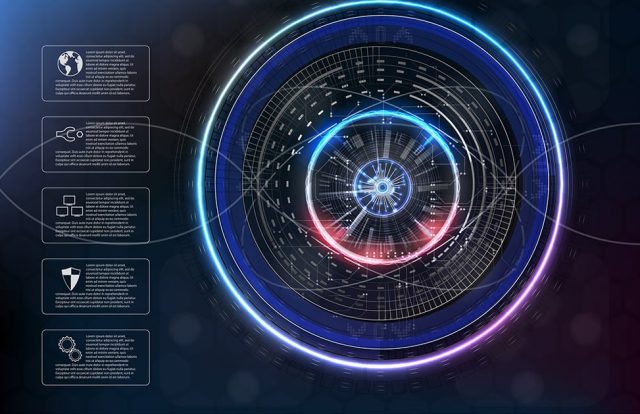
In a latest paper posted on Mother nature, Google researchers claim they programmed a quantum processor to conduct a job that would need 10,000 many years on a condition-of-the-art classical supercomputer. Google’s claim did not fully persuade IBM researchers, who proposed an ideal simulation of the quantum undertaking which, they argue, only needs 2.5 days on a classical computer system and gives higher fidelity.
The job Google chose to show quantum supremacy is made up in sampling the output of a pseudo-random quantum circuit, which provides a established of bit-strings with a particular probability distribution. This task has an quick application for the generation of certifiable random numbers. Employing their 53-qubit Sycamore processor, Google scientists confirmed sampling a person instance of a quantum circuit one million times needed 200 seconds.
The exact task carried via employing a simulation of the very same quantum circuit run on a classical personal computer would take, say Google scientists, 10,000 several years.
This dramatic increase in speed compared to all regarded classical algorithms is an experimental realization of quantum supremacy for this specific computational job, heralding a substantially-anticipated computing paradigm.
Aside from taking part in the function of a benchmark, the simulation on the classical laptop or computer was also made use of to demonstrate the correctness of the outcome manufactured by the quantum processor, as measured by its fidelity. The way Google set up the classical simulation was clear-cut. Certainly, simulating a quantum personal computer is feasible in realistic time for quantum circuits applying up to 43 qubits. This is owing to the possibility of simulating the 243 quantum states making use of a adequately substantial RAM memory. At the time the restrictions of utmost available memory are arrived at, simulating a more substantial qubit quantity demands working the algorithm on a distributed procedure with a value that inevitably, say Google scientists, grows exponentially. On top of that, any foreseeable future advancements in quantum simulation algorithms will be most likely offset by hardware advancements on more substantial quantum processors, they say.
The relevance of Google experiment is not only theoretical, for its implications on quantum supremacy. In truth, fidelity is significantly affected by quantum gates error premiums, which is a important issue in quantum computing due to the fact the lack of mistake correction strategies indicates sound can heavily have an effect on measurements and induce problems. So, demonstrating the probability of attaining substantial fidelity, i.e. very low error fees, in a functional quantum processor is of elementary worth to the potential improvement of quantum computing. It also issues due to the fact of a variety of a specialized developments that were needed for this experiment to function out efficiently. In specific, the paper authors mention three elementary breakthroughs: the development of rapidly, higher-fidelity gates a new strategy to calibrate and benchmark the quantum processor centered on cross-entropy and the skill to correctly predict quantum info behaviour as it scaled to a much larger system.
With their end result, Google scientists assert they have proved two distinct final results: that a quantum processor can perform a activity in a adequately substantial quantum space and with sufficiently low error fees and that a computation job can be devised that is straightforward for a quantum processor and difficult for a classical laptop. Those two intermediate final results are what leads Google researchers to assert they proved quantum supremacy.
The second point is what IBM scientists are objecting to. In a second paper submitted to Quantum Physics, they present how secondary storage can be used to extend the assortment of quantum circuits that can be nearly simulated on a classical process and proved their result employing IBM Oak Ridge National Laboratories supercomputer. Particularly, they say, a Sycamore circuit with 53 and 54 qubits can be simulated with high fidelity in a matter of days.
When [Google researchers’] comparison to classical was made, they relied on an innovative simulation that leverages parallelism, fast and error-cost-free computation, and huge mixture RAM, but unsuccessful to absolutely account for abundant disk storage. In contrast, our Schrödinger-style classical simulation tactic utilizes each RAM and tricky travel room to shop and manipulate the point out vector.
In their paper, IBM researchers are also defending a far more radical philosophical stance on quantum supremacy, even though, declaring the expression “quantum supremacy” is causing confusion because of to its fundamental misinterpretation.
Quantum computers will in no way reign “supreme” over classical computers, but will alternatively function in concert with them, considering that every single have their exceptional strengths.
IBM researchers are not the only types to be crucial to that expression, as its initial proponent, John Preskill, has summarized in a recent short article. A person of the means the use of that expression is not carrying out a great support to quantum computing is pointedly highlighted by Preskill with reference to Google’s prosperous experiment:
The capture, as the Google workforce acknowledges, is that the trouble their device solved with astounding speed was cautiously picked just for the purpose of demonstrating the quantum computer’s superiority. It is not usually a dilemma of a lot realistic fascination.
Other individuals, although have been much more positive. Speaking to the New York Moments Scott Aaronson, a laptop or computer scientist at the University of Texas at Austin who reviewed Google’s paper prior to publication, likened Google’s announcement to the Wright brothers’ 1st aircraft flight in 1903:
The primary Wright flyer was not a beneficial airplane, But it was created to establish a level. And it proved the issue.
All in all, it looks it is definitely much too early to say no matter whether Google accomplishment will be recorded in the annals of quantum computing. What appears to be to be greatly recognized, including by Preskill and IBM scientists, is that Google’s accomplishment represents a pivotal stage in the evolution of useful quantum pcs, opening the way to the generation and use of noisy intermediate-scale quantum pcs for extra cogent programs.







